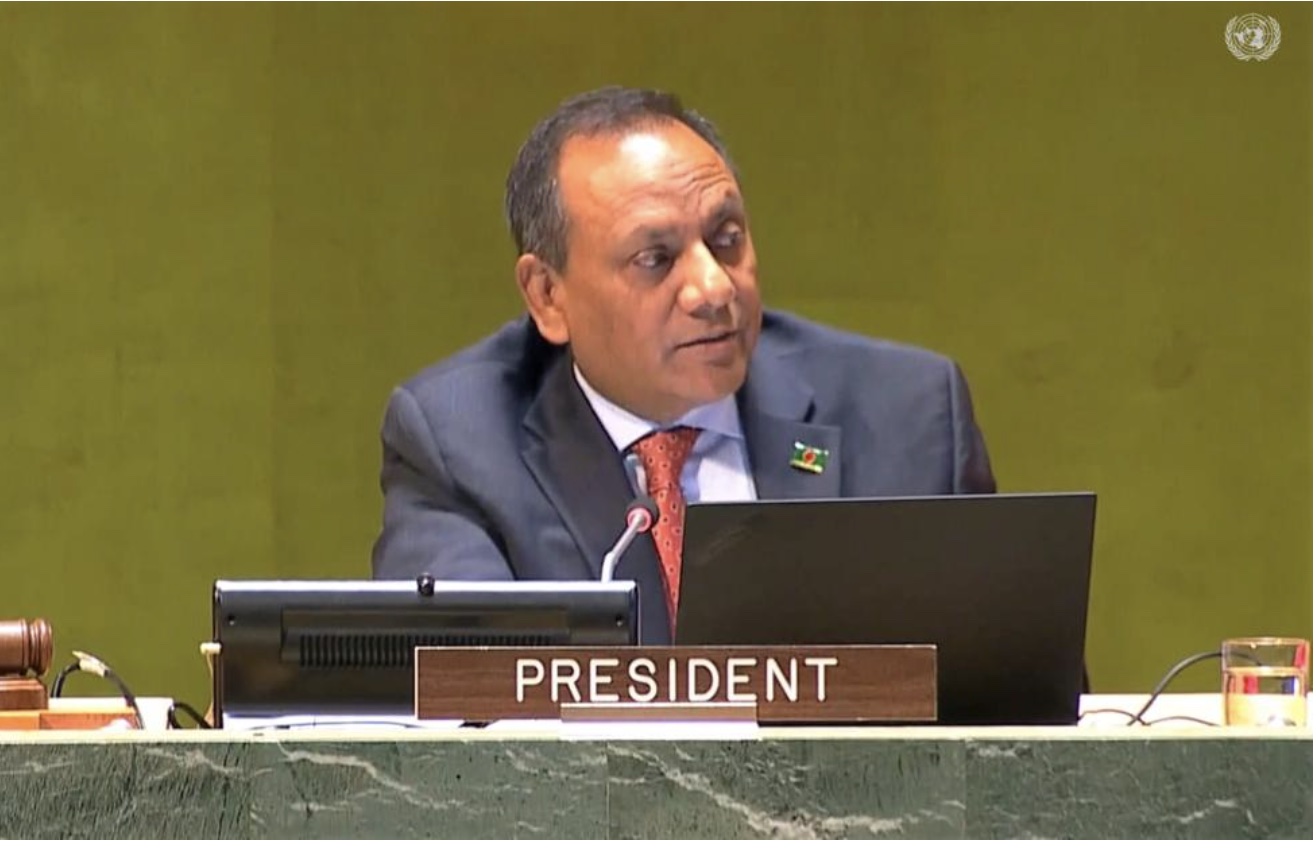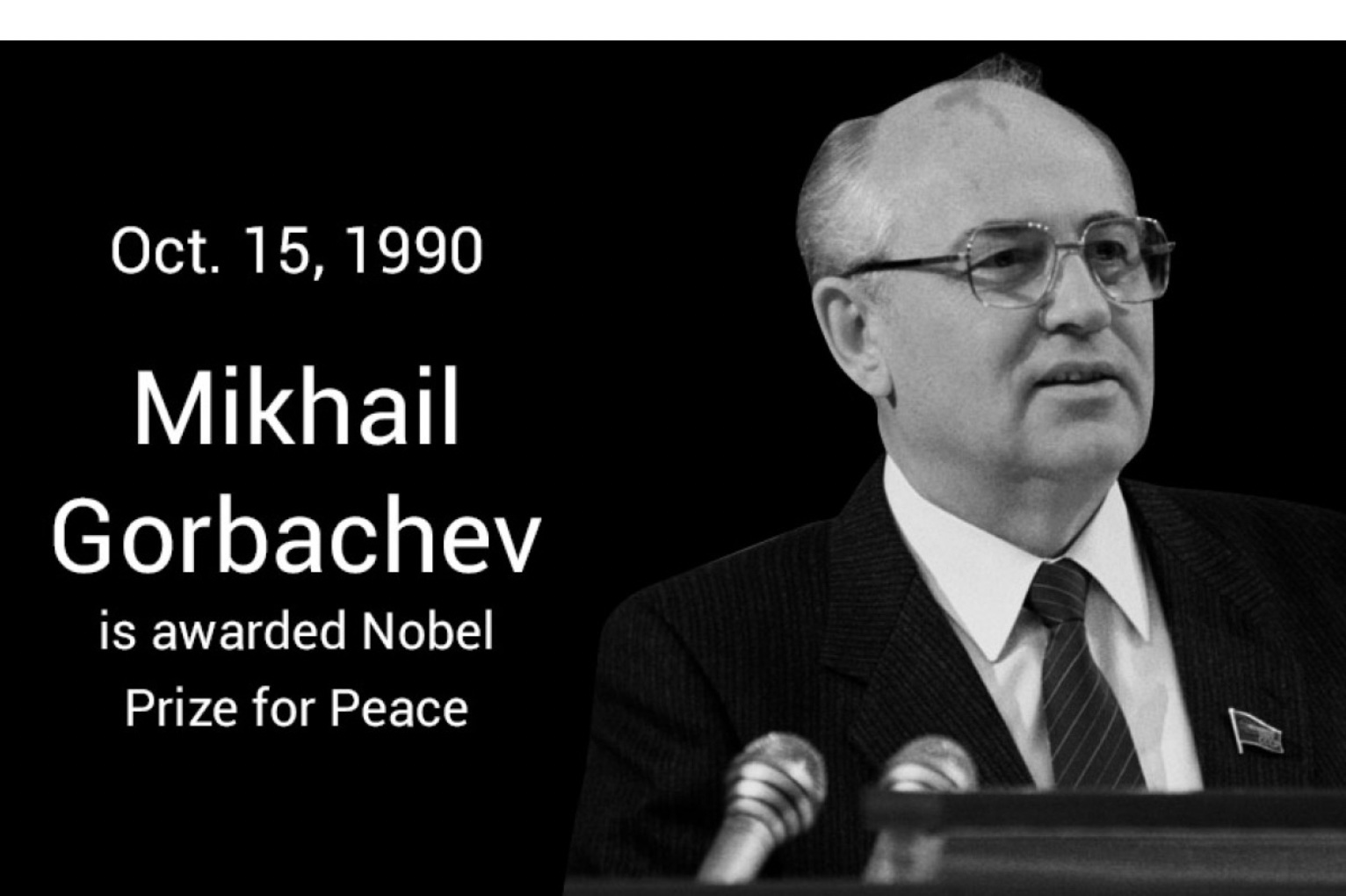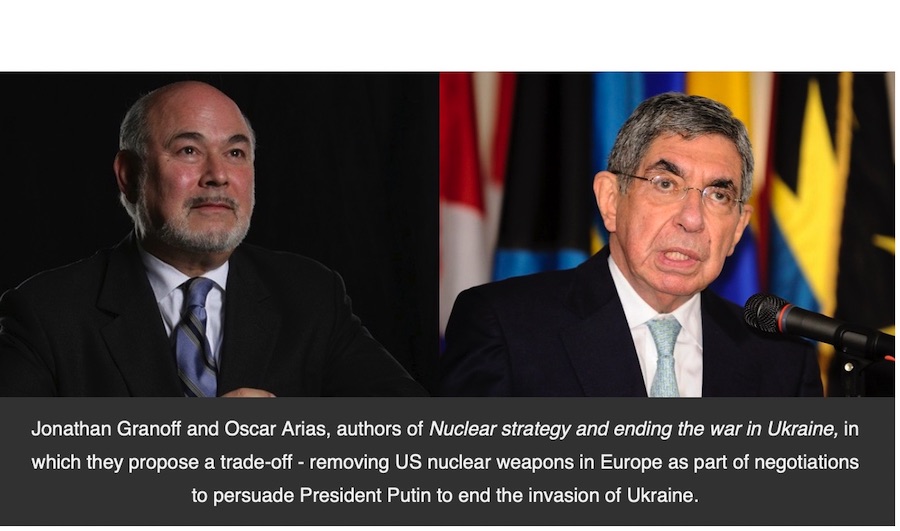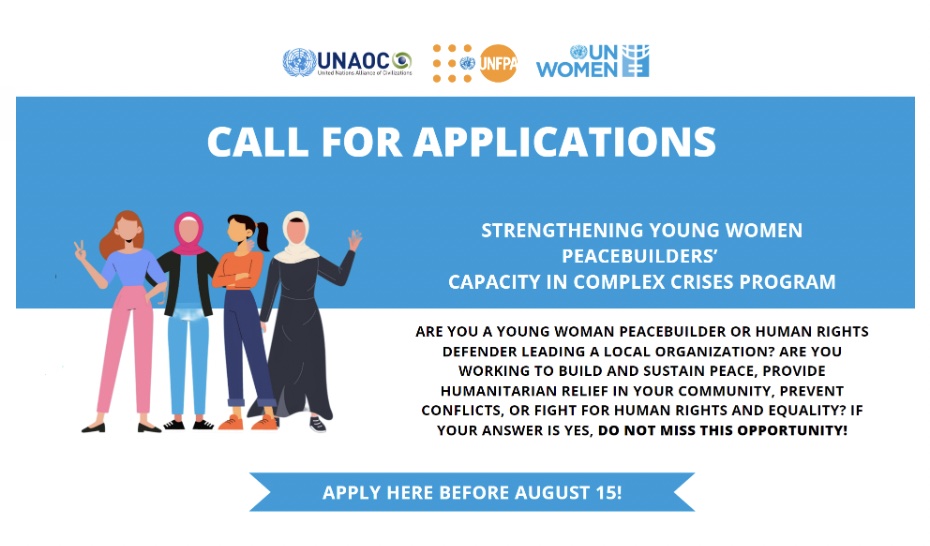FREE FLOW OF INFORMATION
An article from the website of the Action Network
The War Abolisher Awards will be presented at an online event on September 5. To attend, fill in the information and register here..
World BEYOND War’s Second Annual War Abolisher Awards will recognize the work of an environmental organization that has prevented military operations in state parks in Washington State, a filmmaker from New Zealand who has documented the power of unarmed peacemaking, Italian dock workers who have blocked the shipment of weapons of war, and British peace activist and Member of Parliament Jeremy Corbyn who has taken a consistent stand for peace despite intense pressure.
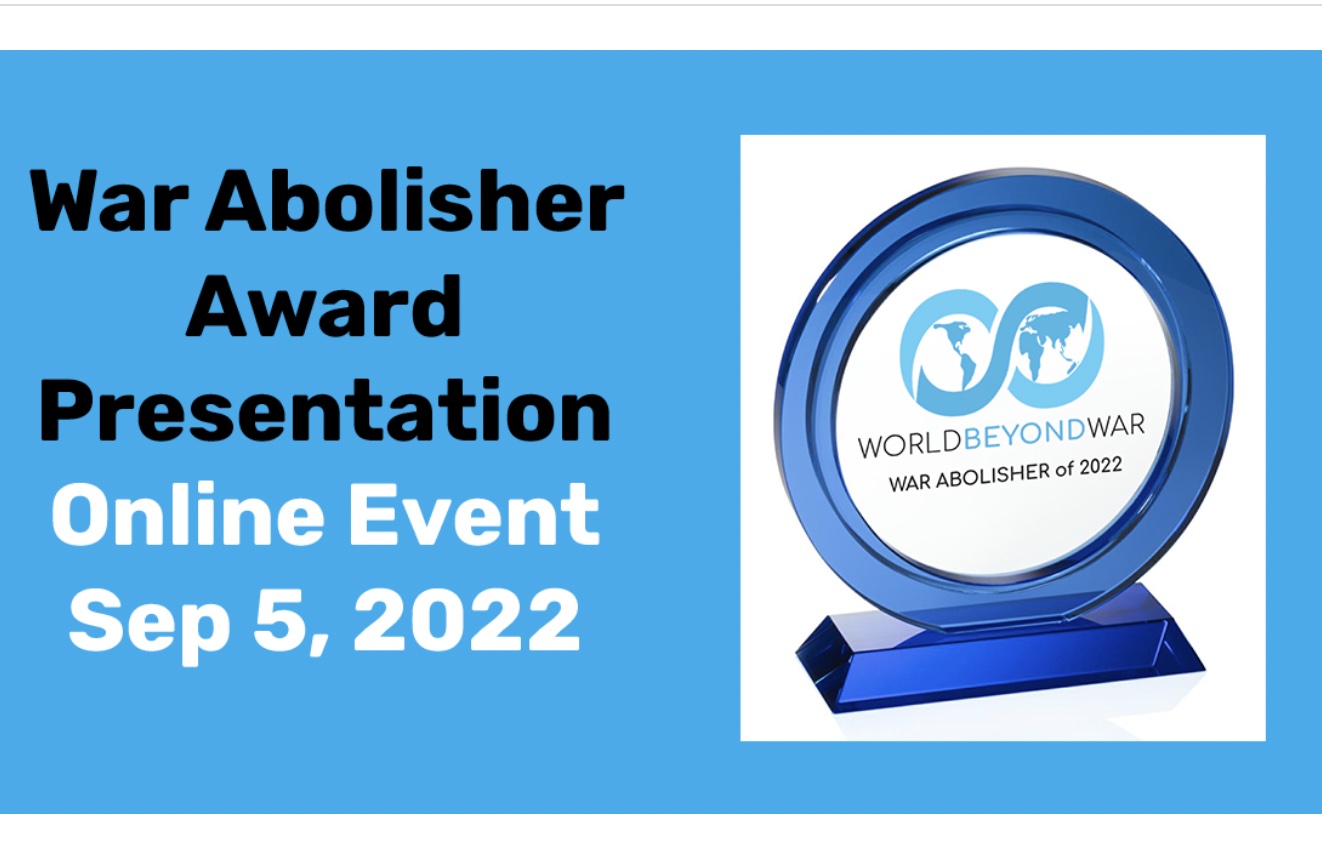
The Whidbey Environmental Action Network (WEAN), based on Whidbey Island in Puget Sound, will be awarded the Organizational War Abolisher of 2022 award.
The Individual War Abolisher of 2022 award is going to New Zealand filmmaker William Watson in recognition of his film Soldiers Without Guns: An Untold Story of Unsung Kiwi Heroes. Watch it here.
The Lifetime Organizational War Abolisher Award of 2022 will be presented to Collettivo Autonomo Lavoratori Portuali (CALP) and Unione Sindacale di Base Lavoro Privato (USB) in recognition of the blocking of weapons shipments by Italian dock workers, who have blocked shipments to a number of wars in recent years.
The David Hartsough Lifetime Individual War Abolisher of 2022 Award will be presented to Jeremy Corbyn.
Whidbey Environmental Action Network (WEAN):
WEAN, an organization with 30 years of accomplishments for the natural environment, won a court case in April 2022 in Thurston County Superior Court, which found that Washington’s State Parks and Recreation Commission had been “arbitrary and capricious” in granting the United States Navy use of state parks for military training. Their permission to do so was vacated in an unusual and lengthy ruling from the bench. The case had been filed by WEAN with the support of the Not in Our Parks Coalition to challenge the Commission’s approval, given in 2021, for its staff to proceed with permitting the Navy’s plans for war training in state parks.
The public had first learned that the U.S. Navy was using state parks for war rehearsals in 2016 from a report at Truthout.org. There followed years of research, organizing, education, and mobilizing of the public by WEAN and its friends and allies, as well as years of lobbying pressure by the U.S. Navy, which flew in numerous experts from Washington, D.C., California, and Hawaii. While the Navy can be expected to keep pushing, WEAN won its court case on all counts, having persuaded the court that unannounced warlike actions by armed troops in public parks was damaging to the public and the parks.
WEAN impressed people for years with its dedicated efforts to expose what was being done and to put a stop to it, building a case against the environmental destruction of war exercises, the danger to the public, and the harm to resident war veterans suffering PTSD. The state parks are locations for weddings, for the spreading of ashes following funerals, and for seeking quiet and solace.
The Navy’s presence in the Puget Sound region is less than positive. On the one hand, they tried (and will likely try again) to commandeer State Parks for training in how to spy on park visitors. On the other hand, they fly jets so loud that the state’s flagship park, Deception Pass, becomes impossible to visit because jets are screaming overhead. While WEAN took on the spying in state parks, another group, Sound Defense Alliance, addressed the Navy’s making life untenable.
A small number of people on a small island are having an impact on Washington State and developing a model to be emulated elsewhere. World BEYOND War is very pleased to honor them and encourages everyone to attend.
Accepting the award and speaking for WEAN will be Marianne Edain and Larry Morrell.
William Watson:
Soldiers Without Guns, recounts and shows us a true story that contradicts the most basic assumptions of politics, foreign policy, and popular sociology. This is a story of how a war was ended by an army without guns, determined to unite people in peace. Instead of guns, these peacemakers used guitars.
This is a story that should be much better known, of a Pacific Island people rising up against the largest mining corporation in the world. After 10 years of war, they had seen 14 failed peace agreements, and the endless failure of violence. In 1997 the New Zealand army stepped into the conflict with a new idea that was condemned by the national and international media. Few expected it to succeed.
This film is a powerful piece of evidence, although far from the only piece, that unarmed peacekeeping can succeed where the armed version fails, that once you actually mean the familiar statement that “there is no military solution,” real and surprising solutions become possible.
Possible, but not simple or easy. There are many courageous people in this film whose decisions were critical to success. World BEYOND War would like the world, and in particular the United Nations, to learn from their examples.
Accepting the award, discussing his work, and taking questions on September 5 will be William Watson. World BEYOND War hopes that everyone will tune in.
Collettivo Autonomo Lavoratori Portuali (CALP) and Unione Sindacale di Base Lavoro Privato (USB):
CALP was formed by about 25 workers in the Port of Genoa in 2011 as part of the labor union USB. Since 2019, it has been working on closing Italian ports to weapons shipments, and for much of the past year it has been organizing plans for an international strike against weapons shipments at ports around the world.
In 2019, CALP workers refused to allow a ship to depart Genoa with weapons bound for Saudi Arabia and its war on Yemen.
(continued in right column)
Questions related to this article:
Where in the world can we find good leadership today?
(continued from left column)
In 2020 they blocked a ship carrying weapons meant for the war in Syria.
In 2021 CALP communicated with USB workers in Livorno to block a weapons shipment to Israel for its assaults on the people of Gaza.
In 2022 USB workers in Pisa blocked weapons meant for the war in Ukraine.
Also in 2022, CALP blocked, temporarily, another Saudi weapons ship in Genoa.
For CALP this is a moral issue. They have said that they do not wish to be accomplices to massacres. They have been praised by and invited to speak by the current Pope.
They have also advanced the cause as a safety issue, arguing to port authorities that it is dangerous to be allowing ships full of weapons, including unknown weapons, into ports in the centers of cities.
They have also argued that this is a legal matter. Not only are the dangerous contents of weapons shipments not identified as other dangerous materials are required to be, but it is illegal to ship weapons to wars under Italian Law 185, Article 6, of 1990, and a violation of the Italian Constitution, Article 11.
Ironically, when CALP began arguing for the illegality of weapons shipments, the police in Genoa showed up to search their office and their spokesperson’s home.
CALP has built alliances with other workers and included the public and celebrities in its actions. The dock workers have collaborated with student groups and peace groups of all types. They have taken their legal case to the European Parliament. And they have organized international conferences to build toward a global strike against arms shipments.
CALP is on Telegram, Facebook, and Instagram.
This small group of workers in one port is making a huge difference in Genoa, in Italy, and in the world. World BEYOND War is excited to honor them and encourages everyone to hear their story, and ask them questions, on September 5.
Accepting the award and speaking for CALP and USB on September 5 will be CALP Spokesperson Josè Nivoi. Nivoi was born in Genoa in 1985, has worked in the port for about 15 years, has been active with unions about 9 years, and has worked for the union fulltime for about 2 years.
Jeremy Corbyn:
Jeremy Corbyn is a British peace activist and politician who chaired the Stop the War Coalition from 2011 to 2015 and served as Leader of the Opposition and Leader of the Labour Party from 2015 to 2020. He has been a peace activist all his adult lift and provided a consistent parliamentary voice for the peaceful resolution of conflicts since his election in 1983.
Corbyn is currently a member of the Parliamentary Assembly for the Council of Europe, the UK Socialist Campaign Group, and a regular participant at the United Nations Human Rights Council (Geneva), Campaign for Nuclear Disarmament (Vice President), and Chagos Islands All Party Parliamentary Group (Honorary President), and a Vice president of the British Group Inter-Parliamentary Union (IPU).
Corbyn has supported peace and opposed the wars of many governments: including Russia’s war on Chechnya, 2022 invasion of Ukraine, Morocco’s occupation of Western Sahara and Indonesia’s war on the West Papuan people: but, as a British member of Parliament, his focus has been on wars engaged in or supported by the British government. Corbyn was a prominent opponent of the 2003-begun phase of the war on Iraq, having been elected to the Steering Committee of the Stop the War Coalition in 2001, an organization formed to oppose the war on Afghanistan. Corbyn has spoken at countless antiwar rallies, including the February 15 largest-ever demonstration in Britain, part of global demonstrations against attacking Iraq.
Corbyn was one of just 13 MPs to vote against the 2011 war in Libya and has argued for Britain to seek negotiated settlements to complex conflicts, such as in Yugoslavia in the 1990s and Syria in the 2010s. A 2013 vote in Parliament against war Britain joining the war in Syria was instrumental in dissuading the United States from dramatically escalating that war.
As Labour Party leader, he responded to the 2017 terrorist atrocity at the Manchester Arena, where suicide bomber Salman Abedi killed 22 concert goers, mainly young girls, with a speech that broke with bipartisan support for the War on Terror. Corbyn argued that the War on Terror had made British people less safe, increasing the risk of terrorism at home. The argument outraged the British political and media class but polling showed it was supported by the majority of the British people. Abedi was a British citizen of Libyan heritage, known to the British security services, who had fought in Libya and was evacuated from Libya by a British operation.
Corbyn has been a strong advocate for diplomacy and nonviolent resolution of disputes. He has called for NATO to be ultimately disbanded, viewing the build up of competitive military alliances as increasing rather than decreasing the threat of war. He is a lifelong opponent of nuclear weapons and supporter of unilateral nuclear disarmament. He has supported Palestinian rights and opposed Israeli attacks and illegal settlements. He has opposed British arming of Saudi Arabia and participation in the war on Yemen. He has supported returning the Chagos Islands to their residents. He has urged the Western powers to support a peaceful settlement to Russia’s war on Ukraine, rather than escalate that conflict into a proxy war with Russia.
World BEYOND War enthusiastically awards Jeremy Corbyn the David Hartsough Lifetime Individual War Abolisher of 2022 Award, named for World BEYOND War’s co-founder and longtime peace activist David Hartsough.
Accepting the award, discussing his work, and taking questions on September 5 will be Jeremy Corbyn. World BEYOND War hopes that everyone will tune in.
These are the second annual War Abolisher Awards.
World BEYOND War is a global nonviolent movement, founded in 2014, to end war and establish a just and sustainable peace. The purpose of the awards is to honor and encourage support for those working to abolish the institution of war itself. With the Nobel Peace Prize and other nominally peace-focused institutions so frequently honoring other good causes or, in fact, wagers of war, World BEYOND War intends its awards to go to educators or activists intentionally and effectively advancing the cause of war abolition, accomplishing reductions in war-making, war preparations, or war culture. World BEYOND War received hundreds of impressive nominations. The World BEYOND War Board, with assistance from its Advisory Board, made the selections.
The awardees are honored for their body of work directly supporting one or more of the three segments of World BEYOND War’s strategy for reducing and eliminating war as outlined in the book A Global Security System, An Alternative to War. They are: Demilitarizing Security, Managing Conflict Without Violence, and Building a Culture of Peace.
